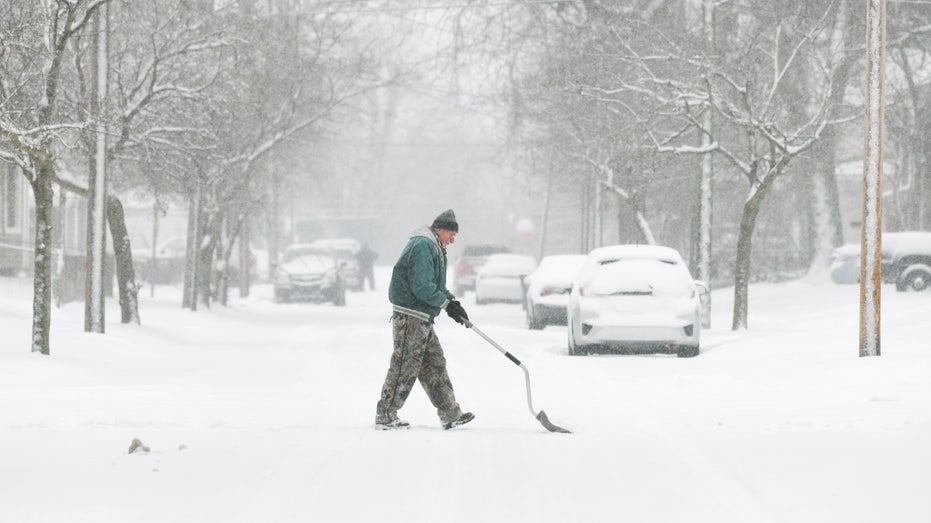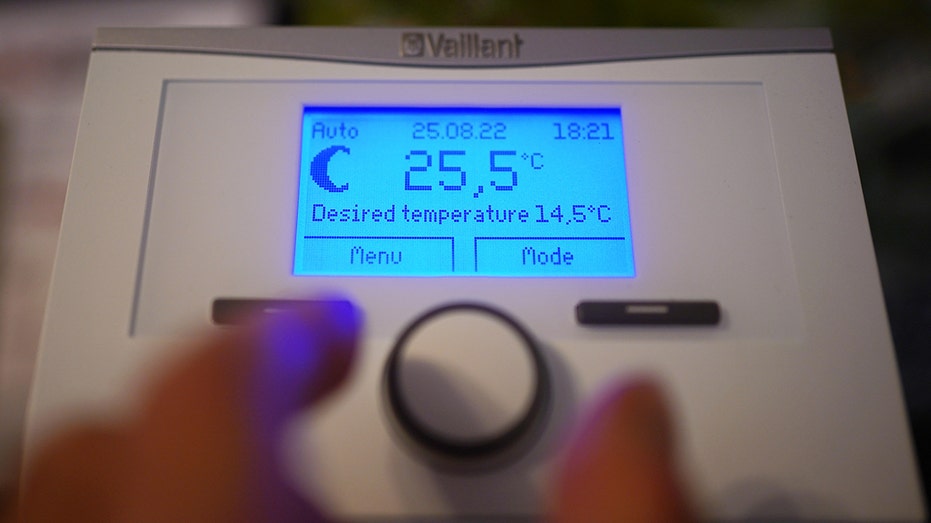Cold snap is here: How to keep home heating costs down
Heating oil and natural gas prices are expected to jump nearly 30% higher than last year
Consumers, already squeezed by inflation, are being warned well ahead of winter to take steps to keep their home heating costs down this year.
The National Oceanic and Atmospheric Administration expects a slightly colder winter this year than last year, meaning heating fuel prices will likely rise as Americans use more energy.
Recently, the U.S. Energy Information Administration forecasted that many households across the U.S. are likely to spend more on energy this winter compared to recent years. The EIA expects natural gas will rise by 28%, heating oil by 27%, electricity by 10%, and propane 5% from October–March.
US GOVERNMENT SAYS ALL AMERICANS WILL PAY MUCH MORE FOR NATURAL GAS THIS WINTER
"Higher forecast energy expenditures are the result of higher fuel prices, combined with higher heating demand because of a forecast of slightly colder weather than last winter," the EPA said in its report.

Jared Sailer helps clear the roads and sidewalks in his neighborhood during a snowstorm in Toledo, Ohio,, Feb. 3, 2022. (Reuters/Gaelen Morse)
Consolidated Edison Inc., which provides energy for roughly 10 million people who live in New York City and Westchester County, started warning consumers as early as September "to take actions now that can help them manage costs this winter as market prices for electricity and natural gas are expected to be substantially higher."
Even Warren Buffett-owned insurance company, Geico, previously issued a guide to help homeowners keep costs down.
| Ticker | Security | Last | Change | Change % |
|---|---|---|---|---|
| ED | CONSOLIDATED EDISON INC. | 107.35 | -1.50 | -1.38% |
| BRK.A | BERKSHIRE HATHAWAY INC. | 762,569.63 | +5,626.63 | +0.74% |
Here are some tips to help make a homeowners' usage more efficient:
1. Take warm not hot showers
Geico previously warned consumers to be wary of taking scalding hot showers. In fact, manually reducing a water heater's temperature from 140°F to 120°F, can help save consumers up to 11% in water heating costs, according to the insurance company.
2. Run your clothes through a cold wash
If consumers adjust the temperature setting on their washing machine to cold from hot, they can cut energy use in half when washing one load, according to Con Edison, which listed out several energy-saving tips and payment options to help the financial burden of heating costs.
ENERGY BILL SURGE: CONSUMERS COULD SHELL OUT $14B MORE THIS WINTER
3. Replace furnace filters
If furnaces are clogged they will be forced to work harder, meaning energy costs will rise, according to Geico.

Hand adjusts domestic home wireless room thermostat. ( Yui Mok/PA Images via Getty Images) / Getty Images)
"Replace the filter and opt for a furnace inspection by a professional to make sure it’s operating at optimal efficiency," the company said.
4. Close vents in unoccupied rooms
Geico suggested closing vents coming from the furnace in rooms that aren't being used. Unoccupied rooms, like an unused guest room, "can be sealed off so the heat gets redirected to occupied parts of the home," Geico added.
5. Check your attic insulation
Attics need a minimum of 11 inches of fiberglass insulation, Geico said.
If a home does not have this much insulation, consumers can lose heat in the upper part of their home and in turn, waste money.
"If you haven’t put down insulation, be sure to seal up any cracks in the attic floor first," Geico said.





















